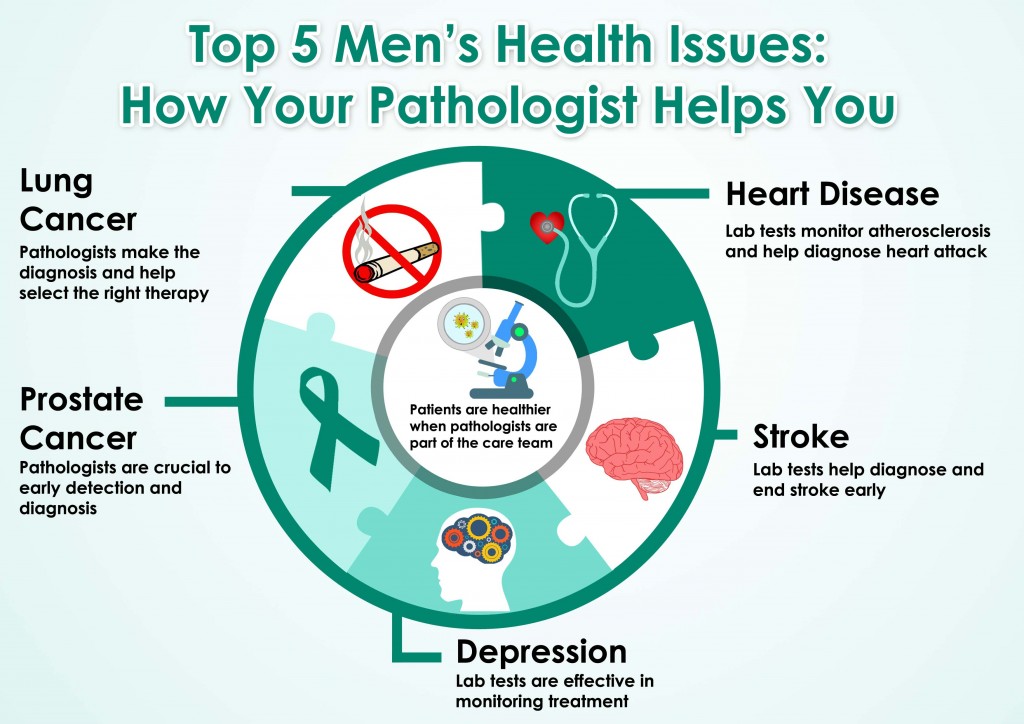I am a pathologist. You probably have never met me but I have spent hours studying your biopsy slides, making a diagnosis and ensuring your blood tests are accurate and precise. Examining specimens from patients of all stages of life, the pathologist diagnoses all types of illness, from cancer to chronic diseases, such as heart disease and diabetes. We are often the “doctor behind the scenes”, but we want to be known. The old stereotypes of practicing in the basement or morgue are a thing of the past. A pathologist is an active member of your care team. Not only is a pathologist instrumental in the diagnosis of disease but we also work to keep you healthy.
The role of the pathologist has evolved, just as healthcare has. We help develop algorithms for the workup of diseases, keep watch over test utilization, help improve patient outcomes and control costs. In short, the pathologist brings great value to you and the overall healthcare system. Pathologists make sure each patient gets the right test at the right time. Quality healthcare begins with quality diagnoses.
June is Men’s Health Awareness Month and is a good time to learn how we impact your health. Men die at a higher rate than women for all the top diseases. They live on average 5 years less than women. Men are less likely to visit a doctor. As a pathologist, I see disease on a daily basis. Much of it can be avoided through routine health care maintenance.
Let’s look at the top 5 health issues for men and see how you have another doctor caring for you, the pathologist.
Heart Disease
Heart disease is the number one cause of death in the US for men and women. Pathologists oversee the laboratory which is vital for providing lab results for tests that help in monitoring atherosclerosis and diagnosing heart attacks.
Stroke
Almost 800,000 people suffer a stroke each year. Laboratory tests are crucial in helping to rapidly diagnose and monitor treatment of stroke. Providing results for a patient’s blood count and coagulation status within minutes is vital. With stroke, seconds matter in being able to diagnose, treat and help recover brain tissue. Most hospitals have a detailed protocol for assessing the stroke patient and making sure they get the lifesaving treatment that can break up the offending clot.
Depression
More than 1 out of 5 Americans suffer from depression, with most not seeking treatment. The laboratory plays a major role in helping patients receive the correct diagnosis. Many diseases can mimic depression and it is important to rule these out. Also, the lab is important for monitoring the effectiveness of drug treatment, allowing your doctor to follow drug levels.
Prostate Cancer
More than 200,000 men will develop prostate cancer this year, making it the #1 cancer after skin cancer. Almost 30,000 men will die of prostate cancer, second only to lung cancer. Pathologists are important in the screening, diagnosis and treatment of prostate cancer. It is not just a disease of older men. Young men can suffer from prostate cancer also.
Lung Cancer
More than 200,000 people are diagnosed with lung cancer each year in the US. The diagnosis of lung cancer is made possible through the work of pathologists. Treatment depends upon the pathologist’s examination of tumor tissue and discovery of unique genetic signature, allowing for the selection of targeted therapy. This personalized approach to care, termed precision medicine, has revolutionized cancer care.
What can you do to help avoid these problems?
1- Make sure you get a good night sleep (6-8 hours).
2- Exercise 1 hour a day.
3- Keep well hydrated. Drink 4-6 glasses of water each day.
4- Follow a healthy diet rich in fruits and vegetables.
5- Stop smoking and limit alcohol consumption.
You need to know the other doctor taking care of you. Ask your doctor about your pathologist. Make sure you are getting the right tests at the right time. We want you to be healthy. Take control of your health.





This is a fascinating article! I had no idea that there were so many things a pathologist does, and how truly involved he or she is as a member of one’s health care team. Obviously, we all know that men are significantly less likely to go see their doctor in general compared to women. Be it out of fear of a bad diagnosis, lack of time, or simply not wanting to go, men are uninformed about their own health to a significant fault. Perhaps a direction society needs to consider going in would be to have a pathologist come in with your primary care doctor at each checkup. I know for me, if a doctor I don’t know comes in with my primary doc, I would be terrified. However, if this becomes the norm, not only are pathologists more appreciated and used more effectively, but patients become more aware and comfortable with the idea of more focus on their health.